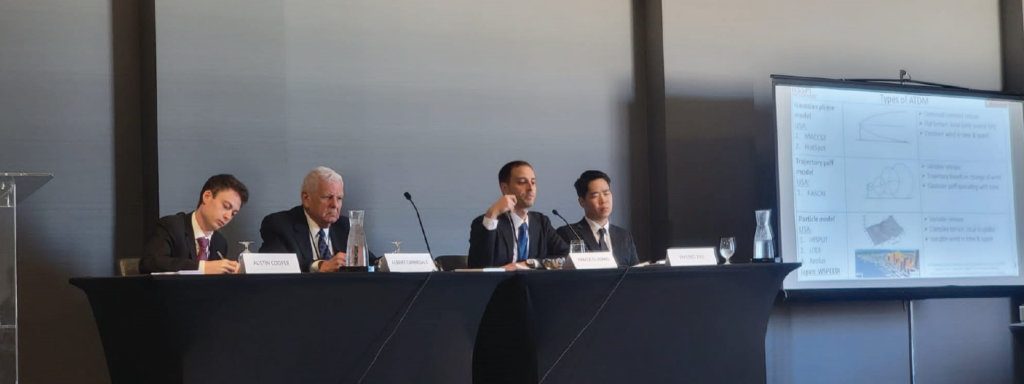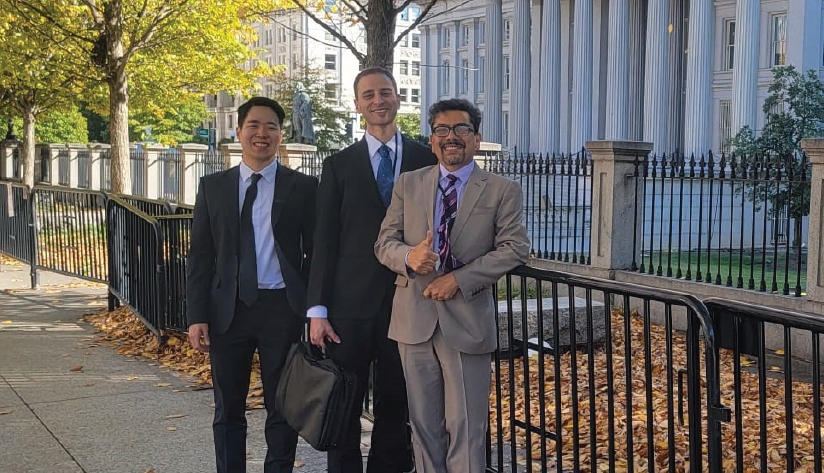The Center for Nuclear Security Science and Policy Initiatives (NSSPI) is currently hosting two Stanton Nuclear Security Fellows working on policy-relevant technical research in nuclear security. Dr. Hamza El-Asaad and Dr. Philseo Kim joined NSSPI this fall and are working with NSSPI Director Dr. Sunil Chirayath and Dr. Matthew Fuhrmann, Texas A&M University professor of political science. In October, they traveled to Washington, D.C. to take part in the annual Stanton Nuclear Security Fellows Seminar where they presented their research ideas to the other Stanton fellows, mentors, and administrators.

Dr. El-Asaad’s project assesses radioactive dispersion from a terrorist attack on a nuclear power plant and uses real atmospheric data from around two operating nuclear plants to simulate the effects of a hypothetical attack. He will employ the Worldwide version of System for Prediction of Environmental Emergency Dose Information, known as WSPEEDI, a powerful dose estimation tool developed by the Japan Atomic Energy Agency, to show the probable risk to the public from a terrorist attack at these existing plants. According to El-Asaad, his analysis could be “one of various tools technical advisors can use to advise policy makers to help in risk or crisis management.” He is also evaluating the nuclear security risk of such an attack as part of his study.
Dr. Kim is studying the nuclear weapons proliferation risk for newcomer countries planning to deploy Small Modular Reactor technology in their countries. Small Modular Reactors have become a popular choice among countries seeking to begin nuclear energy programs, and Dr. Kim hopes to assess the overall proliferation risk of this technology within the political and geographical context of certain newcomer countries. He will use a Bayesian Network to perform a comprehensive assessment of certain newcomer countries in terms of international security, the country’s preparedness, the unique characteristics of Small Modular Reactors, and siting options in each country. “My findings,” he said, “can help guide decision makers on where to identify high-risk countries and where to prioritize resources to mitigate future nuclear proliferation risks.”

The Stanton Nuclear Security Fellows Program supports young scholars to pursue research in nuclear security for a twelve-month period at Texas A&M University under the guidance of a faculty mentor. Fellowships are available for post-doctoral researchers and early-career faculty with the express mission of stimulating “the development of the next generation of thought leaders in nuclear security by supporting research that will advance policy-relevant understanding of the issues.”
The Stanton Nuclear Security Fellows program is supported by the Stanton Foundation, which was created by Frank Stanton to support work in his areas of interest, including nuclear security. Texas A&M is one of seven leading research institutions in nuclear security in the U.S. that currently host Stanton Nuclear Security Fellows.